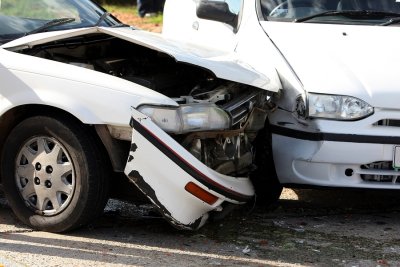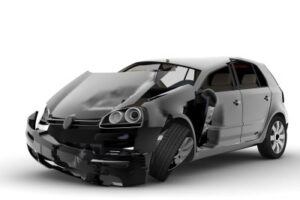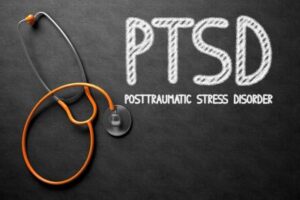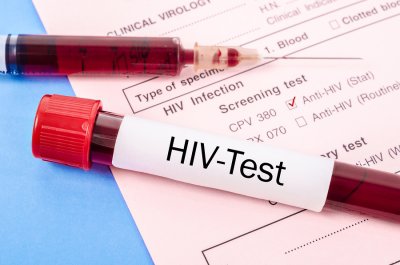-
How Does Another Driver’s DUI Impact Your Accident Claim?
Car accidents occur around the Baltimore area every day. Unfortunately, many of them are caused by reckless drunk drivers who jeopardize the safety of everyone else on the road because of their irresponsible decisions. If you survived a car accident caused by a drunk driver, you should consult an injury lawyer right away. You shouldn’t have to pay for damage inflicted by someone else. Any claim or lawsuit that your injury lawyer files on your behalf will proceed entirely separately from criminal charges against the other driver.

Negotiating a Just Settlement
Drunk drivers cost their insurance carriers big bucks. Because insurance companies know that juries almost always find in favor of the plaintiff in these cases, these companies are usually quite willing to settle the case. However, the insurance carrier’s idea and your idea of a just settlement may be fairly disparate. It can take some back-and-forth negotiations between your injury lawyer and the insurance company to reach a fair settlement. Remember to keep your lawyer updated with any changes in your health status. If you require additional surgery, are diagnosed with another medical problem, or otherwise experience a change in your health, this will affect the settlement negotiations.
Deciding to Take a Settlement
Your lawyer can offer advice on whether or not a settlement offer is fair in light of your losses. However, only you can decide whether to agree to settle the case or not. There’s no need to rush to a decision. If you do agree to the settlement, you cannot later change your mind. However, you could decline the settlement and then reconsider a settlement at a later date, assuming that the other party is still willing to settle.
Going to Trial
If a fair settlement offer is not forthcoming, it’s time to talk to your lawyer about the merits of taking the case to trial. In civil lawsuits, drunk drivers are nearly always held liable for the damages they inflict. However, you will have to be prepared to testify and have your medical records scrutinized. Your lawyer will guide you through each step of the litigation process.
-
Is Your Accident Settlement Offer Too Low?
Even if you have been involved in a previous car accident in the Baltimore area, you may find it overwhelming to deal with the many details of securing compensation. It’s a good idea to speak with an injury lawyer even if you aren’t sure whether you will file an accident injury lawsuit. Your lawyer has plenty of experience dealing with insurance carriers. He or she will help you secure a generous accident settlement.

Initial Offer
It’s to be expected that the first accident settlement offer you receive will be the lowest amount that the insurance adjuster is authorized to offer. Insurance is a business and, as with any business, the insurance adjuster’s goal is to improve the company’s bottom line. Unfortunately, far too many car accident survivors take the first offer they get because they’re unaware that it’s negotiable or because they lack negotiating skills. This is another benefit of hiring an injury lawyer; he or she knows the most effective strategies to use to negotiate with the insurance adjuster.
Medical Expenses
Before deciding whether subsequent settlement offers are too low, you’ll need an estimate of your losses. Calculating your losses can be more difficult than you might think, but your lawyer can handle this task for you. The settlement offer should be substantial enough to fully cover your out-of-pocket medical costs such as diagnostic tests, surgeries, hospitalization, physical therapy sessions, and pharmacy co-pays. Depending on the nature and extent of your injuries, you might also require durable medical equipment and perhaps the services of a home health aide when you leave the hospital.
Property Damage
Your vehicle may have sustained minor damage or it might be a total loss; either way, you deserve full compensation for the damage. The settlement offer should be high enough to restore your car to the condition that it was in prior to the crash. If the vehicle was a total loss, your lawyer will ask for a settlement offer that includes the fair market value of the car. Your settlement offer might even include your rental car or other transportation costs that you incurred after the crash. Keep in close contact with your lawyer throughout the process and advise him or her of any new expenses you incur.
-
What Is Occupational Asthma?
Asthma is a chronic, inflammatory condition that affects the airways and causes trouble breathing. Periodically, the inflammation can become significantly worse in a flare-up called an asthma attack. There are different types of asthma, including occupational asthma, which is a disease triggered by a workplace. If your doctor informs you that you have asthma and you suspect your job may be to blame, talk to a workers’ comp attorney in Baltimore right away. Under workers’ comp law , your medical treatment may be covered and you may be entitled to receive additional benefits.
Your workers’ comp lawyer may ask to see your medical records, which might indicate whether you have work-aggravated asthma or true occupational asthma. Work-aggravated asthma refers to pre-existing asthma that is worsened by conditions in the workplace. True occupational asthma originates directly from the workplace. Jobs that require exposure to chemical irritants or sawdust, for example, can irritate the airways. A workers’ comp lawyer can make sure your employer follows all the necessary steps to protect employees, such as implementing a health surveillance program and establishing effective irritant control measures.

-
FAQs and Answers About Maryland’s DUI-Related AEP Requirements
Maryland’s Alcohol Education Program, or AEP, is a rehabilitation initiative for people who have been convicted of DUI or DWI. If your attorney in Baltimore advises you to attend one of these programs as a result of your court case, here is a look at what you need to know.

What exactly is the AEP?
Maryland’s AEP is a 12-hour class designed to educate people about alcohol use and abuse as well as the risk of driving while intoxicated. It is frequently required for people who have been convicted of DUI or DWI before they can regain their licenses. In some cases, a 12-hour AEP program is recommended by the court in lieu of jail time or other penalties, especially for a first offense. If the court has identified you as an alcohol abuse or alcohol dependent, you may be required to take a longer program than the 12-hour AEP.
What are some reasons I may need to take the AEP?
You could be referred to the AEP on the recommendation of a district court judge or by an administrative law judge from the Office of Administrative Hearings. If your license was revoked because of an alcohol-related offense, you will be referred to the AEP when you apply to have your license reinstated. Your lawyer may request that you be referred to the AEP as well to reduce some of the other potential punishments associated with your DUI or DWI conviction.
What are the consequences of not attending the AEP?
When you are referred to the AEP, you must begin the class within 90 days of your referral. If you do not, then you will receive a letter telling you that you are required to surrender your license to an MVA location. You will need to complete the course before you can get your license back. If you were instructed to attend the AEP in lieu of another punishment, the court may enforce that punishment instead.
If you are in need of a DUI defense attorney, contact Jack J. Schmerling Attorney at Law today!
-
Involved in a Wreck? Don’t Ignore These Delayed Symptoms
Most car accident injuries are immediately apparent, such as lacerations and broken bones. Others may not result in symptoms until hours, days, or even weeks after the wreck. Your injury attorney in Baltimore needs to know about these late-appearing injuries so that he or she can provide effective legal advocacy services, and secure maximum compensation on your behalf.

Back Pain
Low back pain is particularly common among survivors of rear-end and side-impact car accidents. It might not develop right away, and it can become worse without treatment. It’s possible for the pain to be caused by damaged vertebrae, ligaments, or nerves, so talk to a doctor about your symptoms promptly.
Abdominal Pain
Pain or swelling of the abdominal area should receive emergency medical attention. This could indicate severe internal bleeding that may become life-threatening. Other accompanying symptoms may include extensive bruising on the area, dizziness, and fainting.
Neck Pain and Stiffness
Neck pain and stiffness, loss of range of motion, and headaches can indicate whiplash—a common late-appearing injury of rear-end car accident survivors. Without early treatment, it’s possible for whiplash to cause chronic symptoms. Other accompanying symptoms of whiplash may include blurry vision, tinnitus, dizziness, and muscle spasms, along with pain, numbness, and tingling that extends down the arms. Treating whiplash may involve multiple sessions with a chiropractor and/or a physical therapist. Your attorney can help you secure compensation for these medical expenses.
Headaches and Impaired Cognition
Never ignore any signs of possible head trauma or neurological impairment after a car wreck, such as headaches, memory loss, difficulty concentrating, and impaired reasoning. Traumatic brain injuries (TBIs) can develop even if your head wasn’t struck by something. The force of the impact can cause your brain to move back and forth within your skull, causing severe tissue damage. Other signs of brain trauma can include convulsions, nausea, vomiting, confusion, depression, irritability, and loss of balance. Some patients go on to suffer from long-term or permanent changes in personality and functional abilities.
-
Property Damage Claims: What Car Crash Survivors Need to Know
After surviving a car accident, residents of the Baltimore area will have plenty of paperwork to deal with. Hiring an injury attorney is an effective strategy to ensure you get every cent you’re entitled to. Even if you don’t file a lawsuit, your lawyer can coordinate your property damage claim, and tell you if the insurance company isn’t offering a fair settlement. Before filing the paperwork, you’ll need to assess the total value of your losses .

Car Accessories
Your car will likely be the greatest financial loss, especially if it was declared a total loss. The loss of your car is covered under the auto damage portion of the claim. It includes damage to any items that are considered part of the car, such as your car stereo. Non-auto property damage is listed separately, and it can include car accessories like a GPS system, spare tire, or child safety seat. Know that child safety experts recommend replacing child safety seats after each moderate to severe accident—even if the seat doesn’t show signs of damage.
Wearable Items
The items you’re wearing at the time of the car accident can be surprisingly valuable. Even if you weren’t wearing designer clothes that sustained damage, you may have been wearing eyeglasses, a hearing aid, or dentures. If you need to repair or replace these items, you can request compensation for them.
Personal Belongings
Anything you tossed on the passenger seat or backseat can become airborne during a car accident. Since personal belongings like laptops weren’t designed to survive a short flight, they’ve likely sustained damage. Before filing your claim, carefully check for damage to items like cameras and cellphones.
Documented Evidence
Your lawyer will ask you for evidence of the damage. Photos will typically suffice. If the damage isn’t visibly apparent, you may need to take the item to an expert. For example, a computer repair specialist could provide a notarized statement to prove that your laptop is no longer functional. Items that are difficult to put a price on may need to be professionally appraised.
-
A Family’s Guide to Post-Accident PTSD
Although post-traumatic stress disorder (PTSD) is strongly associated with combat veterans, people of all ages and backgrounds can develop it—including residents of the Baltimore area who have been involved in car accidents . PTSD is a serious mental health disorder that warrants the attention of a medical professional. Since behavioral healthcare services can be expensive, and aren’t always covered by insurance, your family may decide to talk to an injury lawyer about the merits of seeking compensation from the at-fault party.

Understanding PTSD
Unlike many mental health disorders, PTSD has an identifiable cause. It always stems from exposure to a traumatic, frightening, or dangerous event, such as the following:
- Being in a war zone
- Experiencing the death of a loved one
- Seeing a dead body
- Surviving a major car accident
- Being trapped in a car after an accident
The symptoms of PTSD linger well beyond the event itself, and they can last past the time it takes the person to physically recover. PTSD does not indicate any character flaws or lack of willpower. It isn’t possibly to simply “snap out of it.” PTSD is a real medical condition that requires expert treatment.
Recognizing PTSD
The signs and symptoms of PTSD can be chronic or short-lived, and not everyone experiences the same symptoms. Usually, symptoms begin within three months of the event. The signs of PTSD are grouped into categories. An official diagnosis requires the individual to experience the following for at least one month:
- One or more re-experiencing symptoms
- One or more avoidance symptoms
- Two or more cognition and mood symptoms
- Two or more arousal and reactivity symptoms
Re-experiencing symptoms are those that involve reliving the trauma. They include flashbacks, nightmares, and frightening thoughts that are impossible to control. Avoidance symptoms occur when the person tries to avoid places, objects, or activities that remind him or her of the event. For example, a car crash survivor might become incapable of getting in a car. Arousal and reactivity symptoms include:
- Angry outbursts
- Difficulty sleeping
- Feeling tense
Lastly, cognition and mood symptoms include:
- Memory loss
- Negative thought patterns
- Withdrawal from previously enjoyed activities
Getting Treatment for PTSD
Treatment is best begun as soon as possible. After a loved one survives a car accident, families should be alert to the potential signs of PTSD. Its treatment is usually a combination of medications, such as antidepressants, and psychotherapy.
-
Does HIV/AIDS Qualify for Social Security Disability Payments?
Human immunodeficiency virus (HIV) is a chronic, incurable disease that attacks the immune system. This leaves patients vulnerable to other serious infections and diseases. Acquired immunodeficiency syndrome (AIDS) is the end stage of HIV infection. Because HIV can take years to progress, patients might not qualify for Social Security disability benefits for a while. A lawyer in Baltimore who handles Social Security disability claims can provide personalized guidance based on the factors that are unique to each case.

When HIV/AIDS Qualifies for Disability Benefits
The primary infection results in acute, flu-like symptoms that typically last no longer than a few weeks. After this point, the patient enters the clinical latent infection stage, also known as chronic HIV. If the patient does not take HIV medications, the stage may last 10 years before progressing to AIDS. With medications, it may take a few decades before reaching the end-stage. During the chronic HIV stage, patients often experience few to no symptoms. This means they might not be classified as disabled. To qualify for Social Security disability benefits before HIV progresses to AIDS, patients must prove that they have one or more “opportunistic” illnesses that arise as a result of the suppressed immune system.
How to Prove Disability
HIV/AIDS patients must first prove that they were diagnosed with HIV/AIDS. This is easily accomplished via medical records. The next step is more complex. It involves sorting through the Social Security Administration’s “blue book,” or listing of official disability requirements. Patients would be well advised to consult a lawyer about these requirements before filing a claim. Here’s a brief, incomplete overview of the requirements:
- Bacterial infection, including multiple infections that required hospitalization
- Viral infection, including treatment-resistant shingles
- Fungal infection, including pneumonia caused by Pneumocystis fungi
- Protozoan or helminthic infection, including toxoplasmosis
- Cancer
- Skin or mucous membrane condition, including treatment-resistant lesions
- HIV encephalopathy with brain swelling that causes cognitive/physical impairment
- HIV wasting syndrome, with a loss of 10% or more bodyweight
- Diarrhea that requires intravenous hydration
Other illnesses can qualify. Consult a lawyer for further guidance.
How to Qualify Based on Limited Functional Capacity
Even if patients do not qualify under the disability listing, they may qualify for benefits based on their limited functional capacity. A residual functional capacity (RFC) rating determines whether a person can perform sedentary, light, or medium work. The SSA will probably consider a person disabled if he or she lacks job skills and higher education, and can only perform sedentary work.
-
Be Prepared for Accidents
The steps you take after a car accident in Baltimore can have a significant impact on your ability to file an accident injury lawsuit in the future. Watch this video to prepare yourself to act if an accident happens to you.
In the immediate aftermath of the car accident, the first priority is getting emergency medical attention if necessary. Call the police to the scene of the accident, and document the location, make and model of other vehicles, and road conditions, using photos if possible. Exchange information with the other driver, but don’t discuss the details of the collision. Go the hospital or your doctor for an exam after the accident, even if you don’t think you’re injured. Some common car accident injuries, like whiplash, don’t cause symptoms right away, so it’s important to see a doctor for diagnosis and to document the injuries as soon as possible.
-
Are Employers Legally Liable for Non-Employee Injuries?
Workers’ compensation insurance protects employers from the financial cost of workplace injuries for their employees, but what about non-employees who are injured while on a job for you? When working with independent contractors, issues of injuries and workers’ comp law in Baltimore become more complex. Consulting with a workers’ compensation attorney can help you understand your rights.
Your liability for non-employee injuries is determined by several different factors. The first is whether you correctly classify the injured party as a non-employee or if he or she should have been classified as an employee and covered by your workers’ compensation coverage. For a true independent contractor, you cannot provide workers’ compensation coverage but the contractor can sue you, if he or she can provide that your negligence contributed to his or her injury. If the worker should have been an employee, you may be required to pay unpaid past benefits as well as injury compensation. Even if your independent contractor has his or her own insurance, you can be sued if your negligence was a factor in the injury. Because of the complexity of workers’ comp laws, you should consult with an attorney immediately after a non-employee injury occurs.

RECENT POSTS
categories
- Uncategorized
- Worker's Compensation
- Attorney Fees
- Auto Accident Injury Whiplash
- Attorney Review
- Personal Injury
- Social Security Disability
- DUI
- Workplace Injuries
- Auto Accident
- Workers Compensation Claims
- Permanent Disability
- Infographic
- Drunk Driving
- Wrongful Death
- Works in Maryland
- Uninsured Motorists
- Motorcycle Crashes
